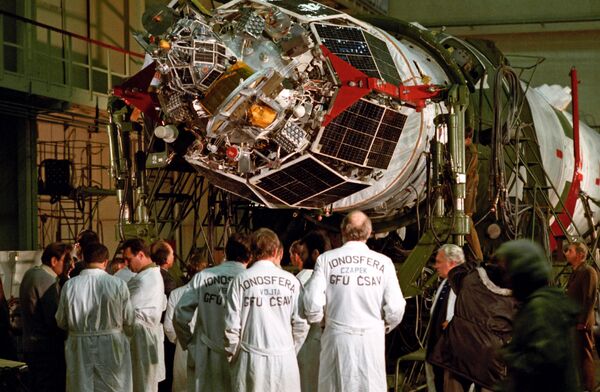MOSCOW, September 16 (RIA Novosti) - The launch of a new meteorological satellite on board the Soyuz 2.1b carrier rocket has been postponed indefinitely due to technical glitches, a source involved in preparations for the launch said on Wednesday.
The Federal Space Agency Roscosmos earlier said the launch of the Meteor-M satellite and five mini-satellites has been postponed for another 24 hours after the first launch attempt was postponed on Tuesday due to poor weather conditions at the Baikonur space center.
The second launch attempt was scheduled for 19:55 Moscow time (15:55 GMT) on Wednesday, but was canceled for technical reasons.
"Additional testing of the launch equipment at launch pad No. 31 and some adjustments to the Soyuz carrier rocket are needed," the source said, adding that the satellites were in good condition.
In addition, a Proton carrier rocket is due to blast off from Baikonur on Thursday with the Nimiq-5 commercial telecommunications satellite.
Meteor-M weighs about 2,700 kilograms (6,000 lbs) and has a service life of five years. It will orbit at an altitude of 830 kilometers (515 miles).
The satellite is designed to gather data for weather forecasts, to monitor the Earth's ozone layer and radiation conditions in the upper atmosphere, and to provide information on ice floe for maritime shipping in the polar regions.
The satellite is the first to carry a "Severyanin-M" radar, which operates in the centimeter wave band to provide all-weather and round-the-clock data independent of natural illumination.
At present, Russia does not have any weather satellites in orbit and uses meteorological data from U.S. and European weather agencies.


